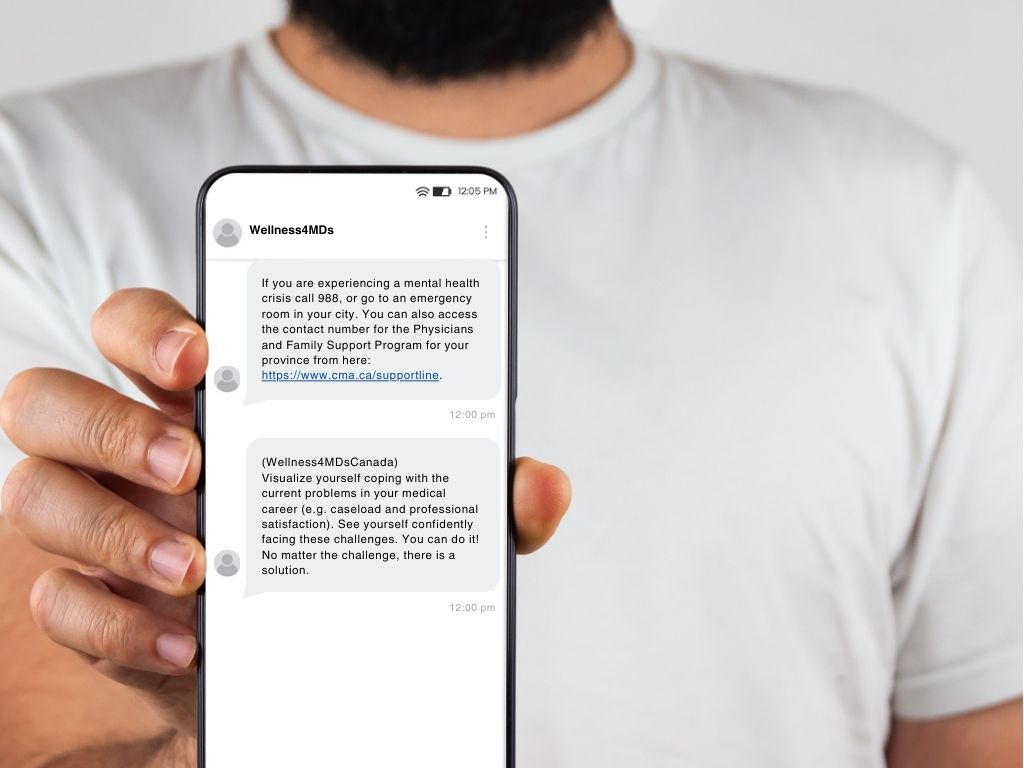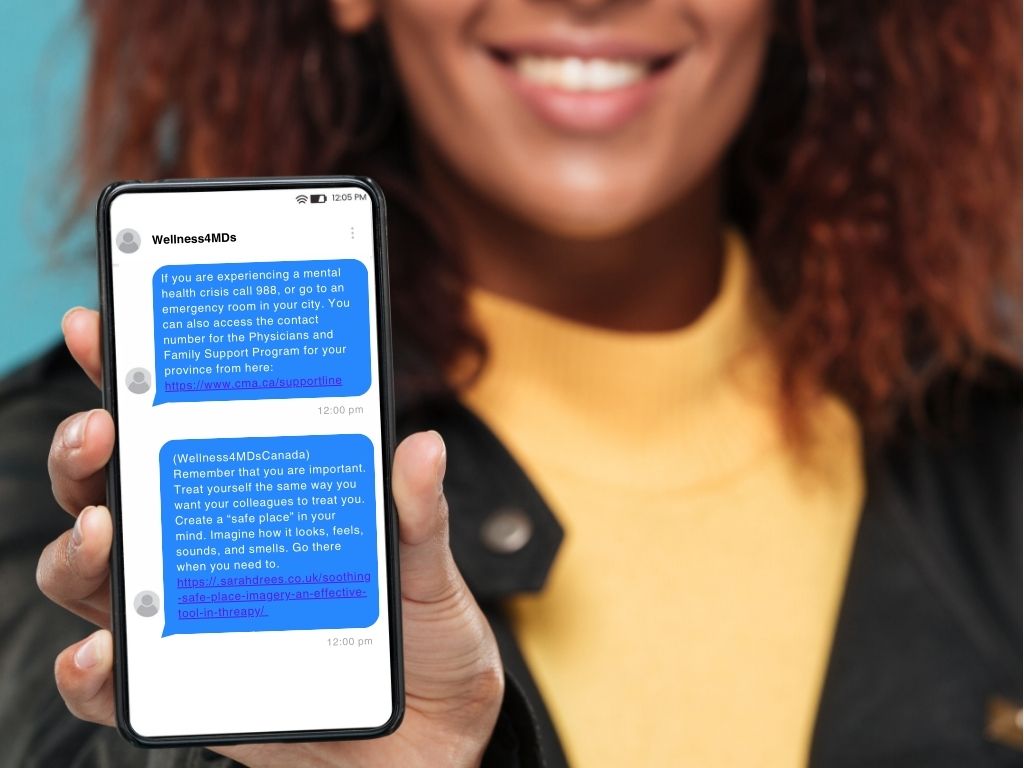- My MOC
- Directory
Menu
 4 MIN READ
4 MIN READ
Pushed to the limit by a health care system in crisis, health care professionals in Canada are experiencing higher levels of burnout, anxiety and depression. The health human resource crisis is caused by a shortage in several professions, but nursing and medicine are significantly affected.
And while physicians are dedicated to delivering exceptional patient care, they often do not seek care themselves, neglecting their individual needs as well as their psychological well-being, says Vincent Agyapong, MD, FRCPC, professor of global mental health and head of the Department of Psychiatry at Dalhousie University, and clinical professor in the University of Alberta’s Department of Psychiatry.

Dr. Vincent Agyapong (submitted photo)
Dr. Agyapong and his team from the University of Alberta and Dalhousie University are looking to change this with the development of Wellness4MDs, a free, subscription-based text messaging program to help make mental health support more accessible for busy physicians, postgraduate medical trainees and medical students.
Wellness4MDs provides subscribers with daily cognitive behavioural therapy-based (CBT) supportive text messages and mental health literacy information. The bilingual program is available in English and French and the content is tailored specifically for physicians. Participation in the program is anonymous. The messages, sent directly to physicians’ devices, are selected and adopted from the bank of over 1,000 supportive messages developed by psychiatrists, mental health therapists, clinical psychologists and mental health service users.

Source: Dalhousie University Department of Psychiatry
Wellness4MDs is a bit like bite-sized therapy – it meets physicians where they are (busy) and spreads the support out daily over the span of six months. This approach eliminates the need for physicians to take an hour out of their schedule each week to attend regular therapy sessions; it also eliminates the cost.
“With Wellness4MDs, you receive CBT-messages six months at a time, so rather than going to your therapist and receiving one dose of intervention, you are only receiving a portion of that and the next day you receive another and so on,” explains Dr. Agyapong, who practises as a psychiatrist throughout Alberta. “The effects are cumulative, and progressively it helps people to shift away from negative patterns of thinking and begin to think more positively. So, it works exactly like CBT, except that you are receiving it in small doses that don't interfere with your schedule.”
Can something as simple as a text message have an impact on someone’s well-being? Yes, according to Dr. Agyapong and the results from studies looking at outcomes in those who subscribed to a previous and similar program, Text4Hope. Launched at the height of the COVID-19 pandemic, the initiative operated in much the same way as Wellness4MDs, but the supportive messages were intended for the general public, to help ease stress, anxiety and depression brought on by the pandemic.
Dr. Agyapong says about 60,000 people subscribed to Text4Hope, over 13,000 people completed the baseline survey and over 3,000 people completed the six-week follow-up survey. The results were consistent with two randomized control trials that were done, one in Canada and one in Ireland, which suggests that these interventions help mitigate the symptoms of anxiety and depression. Suicidal ideation, for example, was 16 per cent for a group that received intervention for six weeks, compared to almost 27 per cent in a group that had only subscribed and had not received any interventions.

Source: Dalhousie University Department of Psychiatry
And, if you’re still not convinced about the positive effect a text message can have, consider the negative effects of one – an experience Dr. Agyapong says led to his original idea for a text-based support program. In 2009, that “text” came first in the form of an email (received on vacation) from a professor, asking Dr. Agyapong to come up with a project idea upon his return. The impact on his vacation was significant as he contemplated what to do.
“Then, I received a random text message from my sister. It was one of those texts that people received and were meant to forward to other people, like a motivational quote,” recalls Dr. Agyapong. “So, it just put me right in the moment and I said, ‘Maybe this is what I need to do – set up a text message program for people who are dealing with anxiety and depression.’ If it helped me in that moment, I knew it was going to be something that could help others.”
Wellness4MDs, which launched on Feb. 12, 2024, was developed in collaboration with the Global Psychological eHealth Foundation and the Departments of Psychiatry at the University of Alberta and Dalhousie University, with the support of funding from a Royal College Foundation Canadian Aid and Action Fund grant.
“As a member, I want other Royal College members to know that the Royal College certainly cares about your psychological well-being and has selected this project to fund because it recognized the importance of addressing physician burnout, anxiety and depression, and finding ways to support physicians at the population level,” Dr. Agyapong says. “This is an initiative that 10,000 people can subscribe to today and there will be no waitlist for people to receive the supports that are so badly needed.”
Dr. Agyapong and his partners expect that long-term outcomes could include lower rates of absenteeism due to stress and burnout, reduced physician turnover, reduced medical errors in clinical practice, better patient safety profiles and satisfaction, and fewer patient complaints.
Learn more about the Wellness4MDs program or text “WELLMD” to 1-855-947-4673 to subscribe.